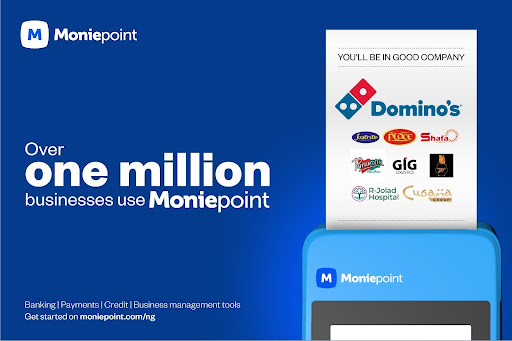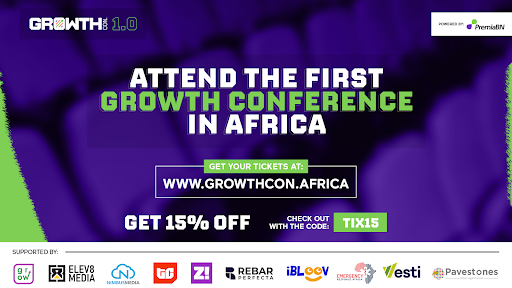- 👨🏿🚀TC Daily
- Posts
- Tunga’s Transatlantic Talent Trade
Tunga’s Transatlantic Talent Trade
This startup’s business is exporting African developers to Europe.


Good morning ☀️
We’re one day away from the launch of the new Twitter.
ICYMI: Mark Zuckerberg and the Instagram team are launching Threads, an Instagram App, on July 6. We don’t know much about the app yet—except that it’s unsurprisingly unavailable in Africa yet—and that it’s Instagram…but with text instead, not photos.
Users sign up using their Instagram account and just chat away.
You know what they say: competition makes the heart beat faster, who knows if this is all the motivation Musk needs to make Twitter the super app he needs it to be.
The Netherlands backs Andela-like Tunga to export tech talent
The Netherlands wants to export Africans…but in a good way.
Many European countries are suffering from a shortage of developer talent. Tech Impact Africa (TIA) a project backed by the Netherlands is training software developers in Nigeria and connecting them to global employers through a staff augmentation firm Tunga.

Global employers? Reportedly, 38% of Africa’s 716,000 developers work for at least one company headquartered outside Africa. Tunga has been connecting tech talent in Nigeria, Uganda, and Kenya to such employers for about six years. It claims to have over 1,500 software developers in its community.
A win-win situation: In addition to the availability of talent,it is also more cost-effective to hire from Africa. The conversion of hard currency to local currency makes talent more affordable. On the other hand, it offers opportunities for senior developers who are looking for globally competitive salaries. Everyone wins!
Zoom out: African countries are also rising to the challenge of producing skilled tech talents. Last year, Kenya introduced a national coding curriculum for its primary and secondary school students. And, in partnership with Microsoft, the East African country launched a digital talent programme to build a workforce of tech talents. Similarly, Nigerians affected by the country’s problematic academic system are looking towards alternative learning platforms like AltSchool and Semicolon to acquire tech skills.
You’ll be in good company

Moniepoint has made it simple for your business to access payments while providing access to credit and other business tools.
Click here to open a business account today.
MultiChoice raises DStv and GOtv prices in Kenya
Starting August 1, 2023, TV subscription prices will skyrocket in Kenya.
MultiChoice announced its third round of price hikes for its DStv and GOtv services in Kenya.

The new subscription prices: DStv's Access plan will see an increment from Ksh 1,250 ($8.8) to Ksh 1,300 ($9), while the Family plan will increase from Ksh 1,750 ($12) to Ksh 1,850 ($13). The Compact plan will be adjusted from Ksh 3,300 to Ksh 3,500, while the Compact Plus plan will increase from Ksh 5,900 ($42) to Ksh 6,200 ($44). Furthermore, the Premium plan will also be increased from Ksh 9,500 ($68) to Ksh 9,900 ($70).
As for GOtv, the Max Bouquet will experience an increase from Ksh 1,350 ($9.6) to Ksh 1,450 ($10.3), and the SUPA bouquet will be adjusted from Ksh 1,750 ($12) to Ksh 1,900 ($13.5).
ICYMI: in August 2022, the entertainment company added Ksh 500 ($3.55) to its DSTV Premium package. In March 2023, MultiChoice again raised prices by 10% to meet up with rising “operational costs”. The change took effect on April 1.
The big picture: This time, Inflation and costs force Multichoice to raise prices, impacting Kenyans who rely on DStv and GOtv for entertainment.
As Netflix and HBO commence a content deal, consumers will have an expansive selection of paid-TV providers. If these providers can deliver a competitive service at a lower price point, they have the potential to attract a considerable portion of MultiChoice's subscriber base. This could break MultiChoice monopoly in many African countries, including Kenya.
South Africa introduces new TV advertising rules
South Africa’s TV advertising regulation is out with the old and in with the new.
The Independent Communications Authority of South Africa (ICASA) has released updated regulations for advertising, infomercials, and sponsored programmes broadcast on the country's airwaves.
ICYMI: The old regulations which have been in effect since April 1, 1999, are now overridden by ICASA's updated rules. These new rules apply to licensed broadcasters, including prominent players such as the South African Broadcasting Corporation (SABC), E-tv owner, eMedia and DStv owner, MultiChoice. Failure to adhere to the regulations may lead to fines of up to 1 million rand ($53,392).
No long ads: The new regulations want to make sure South African viewers are getting their money’s worth.

Section 5(1) of the gazette states that a broadcasting service licensee (BSL) must not transmit any infomercials during prime time or during the transmission of, or in breaks during the transmission of, any children’s programme. Section 5 (3) further states that no channel may transmit infomercials for more than two (2) cumulative hours during the performance period on any one day.
Additionally, Section 6(7) states that product placement in programming other than news and current affairs shall be subordinate to the content of the programme material.
The new regulations will go into effect within six months.
GrowthCon 1.0: Learn how to unlock 10X Growth

Connect with growth leaders, operators, and enablers to explore proven tactics for driving sustained business growth in Africa at GrowthCon 1.0. Experience curated masterclasses, case studies, a growth hackathon and more.
Get your tickets now at 15% off. Use the discount code "TIX15"!
SA to require licences for crypto exchanges
Yesterday, the country’s Financial Sector Conduct Authority (FSCA) announced that crypto exchanges in the country will need to obtain licences if they want to continue to operate. The FSCA has set a November 30 deadline for licence applications.
First of its kind in Africa: South Africa becomes the first country on the continent to require that digital asset exchanges secure licences as crypto regulators and policymakers around the world continue to tighten the regulation belt around cryptocurrency.
Several of the continent’s largest crypto trading exchanges have emerged from South Africa, including Luno and VALR. Other global platforms, such as Binance, operate in the country and will also need to abide by the new regulations.
Zoom out: According to Finder’s Cryptocurrency Adoption Index report, four million South Africans own cryptocurrencies. The index measures the growth of cryptocurrencies worldwide through an ongoing survey of internet users in 26 countries.
The World Wide Web3
Source:

Coin Name | Current Value | Day | Month |
|---|---|---|---|
| $30,837 | - 1.03% | + 14.82% | |
| $1,938 | - 1.80% | + 3.48% | |
$243 | - 0.88% | - 19.25% | |
| $19.22 | - 0.08% | - 10.91% |
* Data as of 05:15 AM WAT, July 5, 2023.
Event: TC Twitter Space
Join our Twitter Space on July 7 to explore the perils of digital loan recovery in Nigeria and Kenya.
Discover the real stories behind the headlines, understand the privacy risks associated with quick loans, and gain insights into protecting your digital rights. Do not miss out on this informative discussion!
📅 Date: July 7
⌚ Time: 6 PM WAT
Set a reminder on Twitter Spaces.
- The AAAS Kavli Science Journalism Awards 2023 ($5,000 prize) is now open to applications from reporters doing work for independent news organisations around the world, with articles readily accessible to the public by subscription, newsstand sales or online access, with the submitted work available in English are eligible to Apply by August 1.
- If you are a young (no older than 24 years of age) and emerging photographer looking to embark on a career in the world of photojournalism, the Ian Parry Photojournalism Grant 2023 (up to £10,000) is open for Applications. Apply by August 31.
- Applications are open for the L’Oreal-UNESCO Young Talents for Women in Science Program - Maghreb 2023. Awarded doctoral and post-doctoral candidates will each receive an endowment of €10,000. Apply by July 30.
- Applications are open for the Sir Harry Evans Global Fellowship 2024 for Early-career Journalists (Stipends available). The fellowship has a monthly salary of £4,444, a £1,250 per month living stipend, and a one-off payment of £1,800 for travel and related expenses. Apply by July 10.
What else is happening in tech?
Want more of TechCabal? Sign up for our insightful newsletters on the business and economy of tech in Africa.
- The Next Wave: futuristic analysis of the business of tech in Africa.
- TC Weekender: weekly roundup of the most important tech news out of Africa.
- Entering Tech: tech career insights and opportunities in your inbox every Wednesday at 12 PM WAT.
- In a Giffy: business decisions powered by data-driven insights and analysis you can trust.
P:S If you’re often missing TC Daily in your inbox, check your Promotions folder and move any edition of TC Daily from “Promotions” to your “Main” or “Primary” folder and TC Daily will always come to you.





